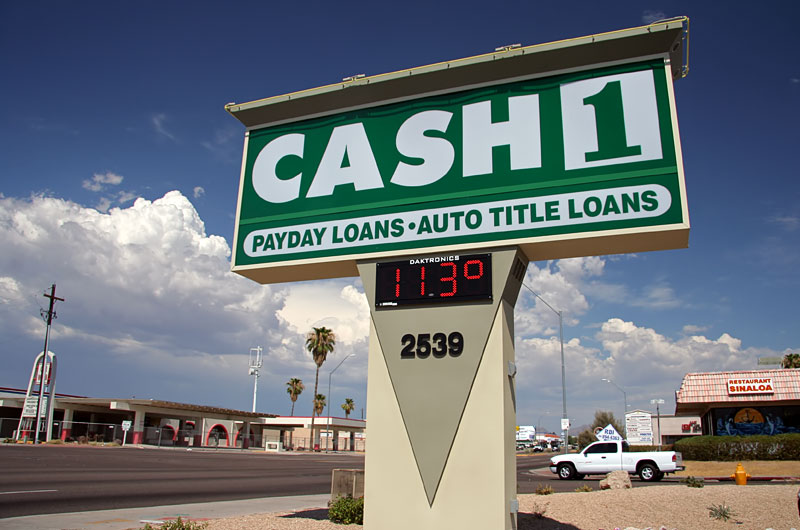In 2007, then-Professor Elizabeth Warren reminded us that “it is impractical to obtain a toaster which has a chance that is one-in-five of into flames and burning straight down your house.” But it’s entirely possible to buy a financial product with the same odds of causing financial ruin—payday and car title loans can come with annual interest rates of 300 percent or more, leaving many borrowers worse off than before as she noted.
Today, the customer Financial Protection Bureau (CFPB) released new regulations to assist just simply just simply take these harmful lending options from the rack. This guideline is anticipated to assist struggling families avoid $8 billion in costs from predatory lenders every year. Yet, it faces an uphill battle—the CFPB will require not just general general general general public help because of its guideline to come quickly to fruition, but in addition for Congress not to ever sabotage its efforts as well as for state legislatures to aid push it to your finishing line.
These reforms are sorely required, as payday and title turn that is lending revenue regarding the backs of cash-strapped families. In return for usage of somebody’s banking account or an extra group of secrets to their vehicle, these loan providers typically provide quick cash—anywhere from a hundred or so bucks to a couple thousand—expecting it become reimbursed either through the next paycheck or next thirty days.
Missouri has almost as numerous pay day loan shops as supermarkets.
But, numerous borrowers can not manage to spend back once again the mortgage during the next payday or perhaps the finish associated with the thirty days. Alternatively, 4 away from 5 borrowers need certainly to move over that loan, and take down a different one to cover right straight back the very first. The effect is the fact that interest and charges accumulate, and borrowers aren’t able to pay for along the initial loan also. This may trigger enormous hardship that is economic. As St. Louis resident Naya Burks found after borrowing $1,000, her loan became a $40,000 financial obligation through interest, costs, and case. So when the CFPB’s research that is own shown, 1 in 5 vehicle name borrowers lose the vehicle to repossession.
It is not surprising, then, that faith leaders from all traditions that are different talked down against these loans. The states took action too. As much as 14 states while the District of Columbia have actually instituted interest caps of 36 % or less to ban these loans. Certainly, in Arkansas, where in fact the state Constitution now places a roof on interest levels, only 12 % of previous borrowers stated which they had been worse down  because of this.
because of this.
Regrettably, numerous people in Congress appear to have missed the memo why these are toxic products which do more damage than good. Florida’s Congressional delegation, amongst others, has attempted to block the CFPB, arguing that their state currently gets the problem under control—even as lenders just just simply take $76 million a 12 months from the state’s economy. And simply a year ago, Congress attempted to damage tough anti-predatory financing rules that protect solution people as well as considered hampering the CFPB’s capacity to work individually.
The CFPB’s guideline will rein in a few regarding the worst methods in this industry. In lots of circumstances, it should take lenders to find out if the debtor is in fact in a position to spend back once again that loan before you make one out of the very first spot. It will probably restrict just how numerous loans borrowers may take away, so when. And it also shall limit loan providers’ ability to pickpocket by seizing funds from borrowers’ banking account over repeatedly without permission.
These strong rules that are federal also essential because numerous states have actuallyn’t had the oppertunity to handle this issue by themselves. Missouri has almost as numerous pay day loan shops as food markets, having a a typical interest on these loans of 444 %. Plus in 2014, the Louisiana legislature could not also pass a weak bill restricting payday advances to ten each year. That is not forgetting Ohio, where voters overwhelmingly supported a payday financing ban, but loan providers rechartered themselves as home loan organizations by way of a appropriate loophole. But states nevertheless usually takes action to control this abusive training. They could stick to the lead of brand new York, vermont, among others states by capping rates of interest, an action of additional value considering the fact that a loophole in Dodd-Frank obstructs the CFPB from using this course of action. As well as states with strong guidelines from the written publications need certainly to stay firm whenever lured to follow a looser standard.
Stopping your debt trap will not take place in one day. But today, the CFPB requires a step that is big going for a toxic item from the racks. Congress, and also the country, should take serious notice.
